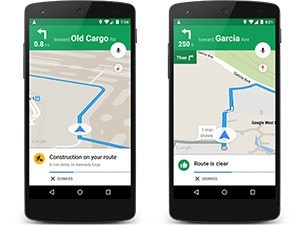
Google has launched a new feature, called SOS alerts, which provides information pinned to the top of search results during times of crisis.
It announced this week it will roll out several features in its mobile search product and Google Maps, meant to help people caught in the centre of a crisis understand what is going on around them.
Google VP for engineering Yossi Matias explains: "In times of crisis, access to timely, actionable information is crucial. Working alongside trained responders and volunteers on the ground, technology plays a vital role in providing information to help keep you and loved ones safe and informed."
The SOS alert will appear at the top of search results when searching for the incident or location.
"You'll see maps, top stories and - when available - authoritative local information such as emergency phone numbers, Web sites, and translations of useful phrases. Depending on how close you are to the affected area, you may also get a notification on your mobile device that directs you to this information," says Matias.
People outside the affected area will receive a timely overview of the situation when they search for the name of the event or the location. In some cases, there will be other features, such as where to make a donation to aid in relief efforts.
Google Maps on mobile will show a specific icon on the map and a tap-able card with more information about the crisis, such as helpful phone numbers and Web sites.
The map will also include real-time updates, like road closures and traffic and transit updates.
The crisis products were developed with organisations and government agencies that are often on the front lines of relief efforts. These include the Red Cross, the Federal Emergency Management Agency (FEMA), the Philippine Atmospheric, Geophysical and Astronomical Services Administration, and many others.
"Radio and television were once the only channels to quickly provide information in an emergency, but the Internet and mobile phones have become increasingly important," says Robert Glenn, director at FEMA.
The company's philanthropic arm, Google.org, will also provide grants and volunteers for communities impacted by crises.
"We hope you never need to use crisis response features, but if you do, they're designed to help keep you, and those you love, safe and informed," says Matias.